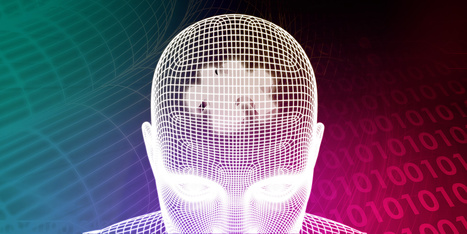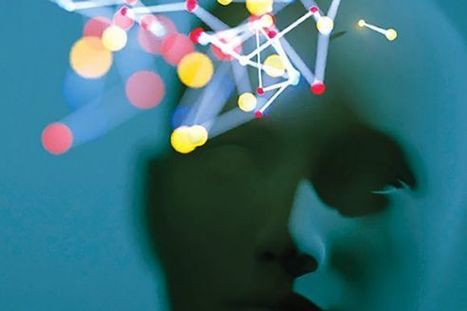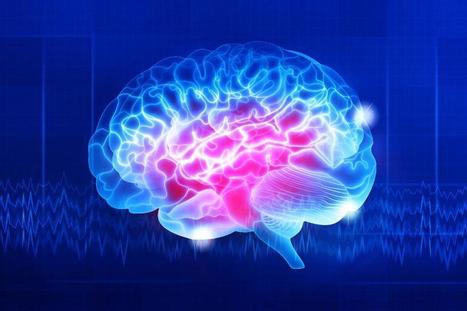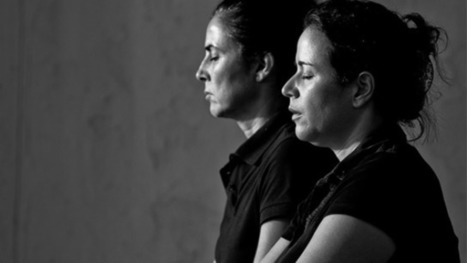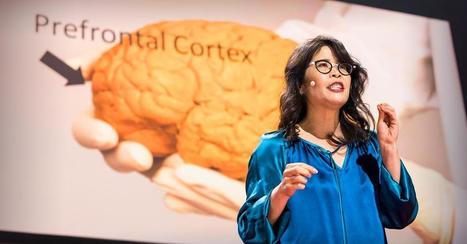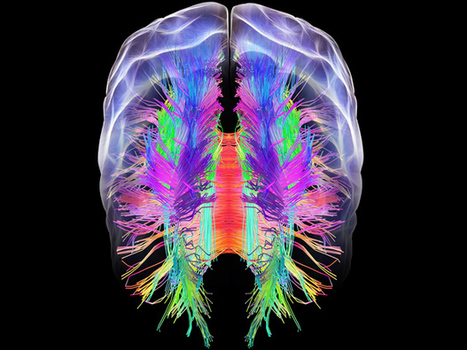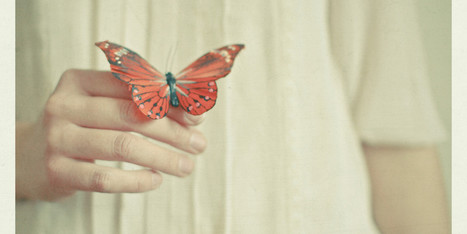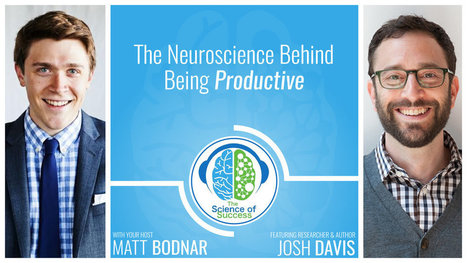 Your new post is loading...
 Your new post is loading...

|
Scooped by
Kasia Hein-Peters
March 10, 2018 12:00 PM
|
Experimental psychologist Petter Johansson researches choice blindness -- a phenomenon where we convince ourselves that we're getting what we want, even when we're not. In an eye-opening talk, he shares experiments (designed in collaboration with magicians!) that aim to answer the question: Why do we do what we do? The findings have big implications for the nature of self-knowledge and how we react in the face of manipulation. You may not know yourself as well as you think you do.

|
Scooped by
Kasia Hein-Peters
March 2, 2018 10:40 PM
|
Changing your behavior isn't easy, but it can be done, and your brain can help you in the effort. Here's the science behind doing that.

|
Scooped by
Kasia Hein-Peters
February 21, 2018 8:17 PM
|
Everybody says meditation is great but how do you do it right? Let's look at the neuroscience of meditation and how it can make you much happier.

|
Scooped by
Kasia Hein-Peters
February 4, 2018 8:45 AM
|
It’s in the back of the minds of so many leaders, whether it’s the CEO of a Fortune 500 company or the manager of a large division.

|
Scooped by
Kasia Hein-Peters
February 3, 2018 12:17 PM
|
Bad habits. We all have them, and they all suck. If we could, we would amputate them from our bodies, toss them into a dumpster, and hope we never have to see them again. Why? Because bad habits can ruin our lives. They eat up our time, take us away from our more important goals …

|
Scooped by
Kasia Hein-Peters
January 9, 2018 8:17 PM
|
In today’s health-conscious world we are constantly bombarded with advice on how we should eat, sleep and exercise to get the best result for our bodies. However, the impact of lifestyle choices on the brain is not always appreciated.

|
Scooped by
Kasia Hein-Peters
January 7, 2018 11:32 AM
|
Neuroscience suggests that people are predisposed to be more like Santa than Scrooge.

|
Scooped by
Kasia Hein-Peters
December 29, 2017 6:29 PM
|
Neuroplasticity has become a buzzword promising that you can re-wire your brain to improve health and mental well-being. So, exactly how does it work?

|
Scooped by
Kasia Hein-Peters
December 25, 2017 4:16 PM
|
Technology Networks is an internationally recognised publisher that provides access to the latest scientific news, products, research, videos and posters.

|
Scooped by
Kasia Hein-Peters
December 8, 2017 4:12 PM
|
Positive Psychology Interventions have shown to have powerful effects on reducing depressive symptoms and aiding in their prevention. The evidence is in.

|
Scooped by
Kasia Hein-Peters
December 1, 2017 9:37 PM
|
The brain science of breathing is revealing much about how controlled breathing influences our emotions, regulates stress and anxiety levels, and affects other factors central to mental and physical health.

|
Scooped by
Kasia Hein-Peters
November 26, 2017 11:35 PM
|
The Big Five is a theory of personality that identifies five distinct factors as central to personality. This article offers an overview of these 5 factors.

|
Scooped by
Kasia Hein-Peters
November 15, 2017 8:42 PM
|
Sleep helps us to strengthen both old and new versions of experiences, allowing us to use our memories adaptively, researchers report.
|

|
Scooped by
Kasia Hein-Peters
March 3, 2018 10:43 PM
|
What's the most transformative thing that you can do for your brain today? Exercise! says neuroscientist Wendy Suzuki. Get inspired to go to the gym as Suzuki discusses the science of how working out boosts your mood and memory -- and protects your brain against neurodegenerative diseases like Alzheimer's.

|
Suggested by
Liz Angelene Verano
February 24, 2018 2:29 PM
|
Humans are responsible for 70% of airplane crashes, 90% of car wrecks, and 90% of workplace accidents. But people are also a core part of business. The same factors that make humans irreplaceable — nuanced judgement, emotion, and creativity — also make humans a pain to manage. You don't get these problems with

|
Scooped by
Kasia Hein-Peters
February 12, 2018 1:32 AM
|
A depressed brain looks like any other brain. Depression is just the routine activation of certain brain circuits which we all have in specific patterns.

|
Scooped by
Kasia Hein-Peters
February 4, 2018 6:02 AM
|
What the body feels is every bit as significant as what the mind thinks, a neuroscientist argues. Turn to emotions to explain human consciousness and cultures

|
Scooped by
Kasia Hein-Peters
January 10, 2018 8:04 PM
|
As most of us know all too well, lack of sleep and a bad mood often

|
Scooped by
Kasia Hein-Peters
January 7, 2018 11:34 AM
|
The secret to lasting happiness might be neatly summed up in a cheesy neuroscience joke: "The neurons that fire together, wire together."
"It’s

|
Scooped by
Kasia Hein-Peters
January 3, 2018 9:02 PM
|
On this week's episode of "The Science of Success", we speak with Columbia Ph.D. Josh Davis, who is currently the director of research for the NeuroLeadership Institute, a NeuroCoach and Master Practitioner of NLP. Josh is also the author of the recent international bestseller Two Awesome

|
Scooped by
Kasia Hein-Peters
December 28, 2017 7:38 PM
|
Neuroscientists have discovered that “social pain” activates the same brain regions as physical pain.

|
Scooped by
Kasia Hein-Peters
December 8, 2017 4:14 PM
|
Writing therapy, also known as journal therapy, is exactly what it sounds like – journaling for therapeutic benefits. Read more here!

|
Scooped by
Kasia Hein-Peters
December 2, 2017 12:06 PM
|
In this piece, you’ll learn about the foundations, theories, and techniques of this groundbreaking therapy: Rational Emotive Behavior Therapy.

|
Scooped by
Kasia Hein-Peters
December 1, 2017 8:39 PM
|
Everybody says meditation is great but how do you do it right? Let's look at the neuroscience of meditation and how it can make you much happier.

|
Scooped by
Kasia Hein-Peters
November 26, 2017 8:49 PM
|
Has a teacher ever described you as “creative?” Have you ever been asked to provide examples of your creativity in a job interview? If so, you may have a fixed idea of yourself as more or less creative, based on your own personal experience and the feedback of others. But it turns out that’s probably…
|



 Your new post is loading...
Your new post is loading...



